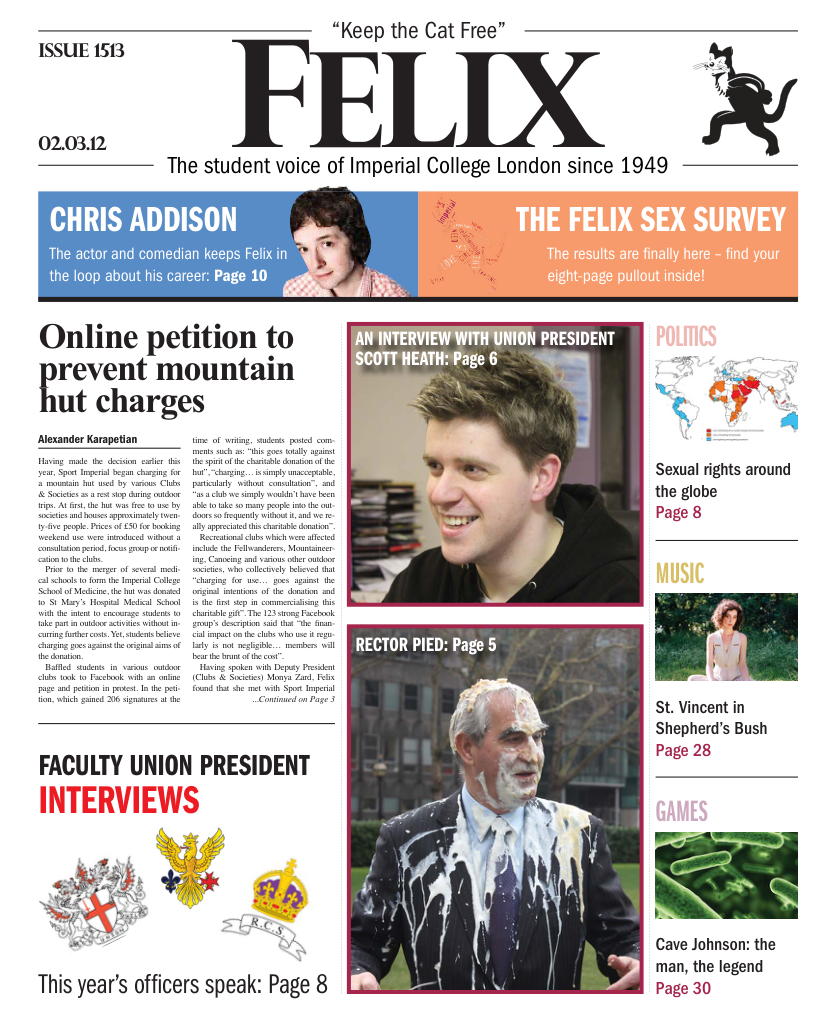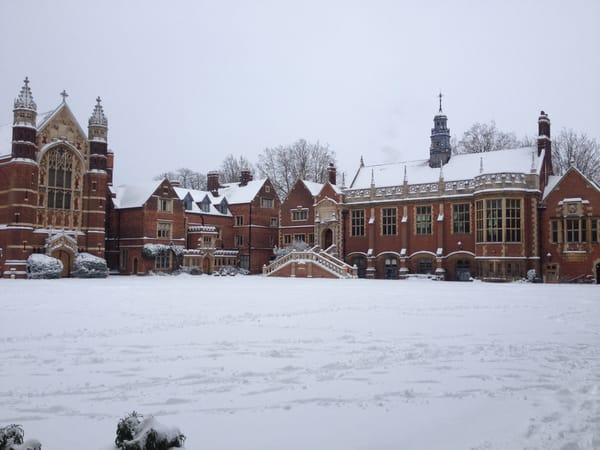On Médecins Sans Frontières
The humanitarian organisation has a significant presence at Imperial – find out how to get involved
Médecins Sans Frontières (MSF) is an international humanitarian organisation that provides medical humanitarian assistance in situations of extreme need irrespective of race, religion, creed or political convictions. In the past few months, media attention has focused on the risks of delivering aid to refugees and internally displaced persons (IDPs), after Dr. Karel Keiluhu and Philippe Havet were killed in Mogadishu, Somalia and Blanca Thiebut and Montserrat Serra were abducted in Dadaaab, Kenya. Why did these four feel so passionate that they would risk their lives volunteering so far from home, what work were they doing and how can you get involved to make their dreams reality?
Firstly, let’s consider the scale of the problem. A refugee is defined as someone who has crossed a national border to flee conflict or persecution. Even if they make it no further than a camp in the neighbouring country, under the 1951 Convention on the Status of Refugees, they have the right to protection from violence, basic humanitarian assistance and a long-term solution (remaining in the country of refuge, resettling in a third country or returning home). IDPs are those who remain within their country of origin. The United Nations High Commission for Refugees (UNHCR) has only assumed responsibility towards certain IDP groups, leaving the majority under the rule of their own governments, which are often implicated in the violence they are trying to escape. The UNHCR estimated in 2009/2010 that there were 15.4 million refugees and 27.5 million IDPs. About half come from Sudan, Iraq, Columbia, Palestine and Afghanistan. MSF works with IDPs in all these areas and refugees in neighbouring countries as well, dealing with ongoing violence and limited or non-existent healthcare infrastructure.
These issues are also concerns in Somalia, where MSF has provided medical aid since 1991. In addition to the violence, the 2011 drought brought yet another famine, displacing an estimated 1.5 million people into the capital Mogadishu as well as neighbouring Kenya and Ethiopia (where MSF runs hospitals and health posts in refugee camps). A man mourning at his grandchild’s funeral starkly illustrates this: “Over the last 3 years the farm dried up. We wanted to feed the children but there was nothing.” With limited vaccine coverage, childhood infections are rife, and quickly become epidemics in crowded refugee camps. Mortality rates are 6 times “emergency levels” as a result of extreme malnutrition. In 2008 MSF national staff performed over 700,000 outpatient consultations and admitted over 24,000 as inpatients: they treated neglected tropical disease like kala azar, malaria, tuberculosis, delivered antenatal care, performed basic surgery, gave vaccinations and administered therapeutic feeding.
Arguably this is just a drop that can never even hope to fill the ocean of need. Emergency humanitarian aid will never resolve the underlying issues. But as the former president of MSF, Dr. James Orbinski, argues, “It’s not about creating a perfect future, it’s about responding to another person who is suffering as a human being”. An MSF surgeon in Iraq explains “over half [our surgeries] are on emergency patients [with curable conditions]. We are making a real difference”. Mary, a Burundian woman whose life was saved by an emergency blood transfusion puts it more simply: “If it weren’t for MSF, my five children wouldn’t have a mother”.
Thank you for reading despite my reliance on numbers as evidence both for the importance of the situation and that MSF’s work is significant. So how can you help make that difference? Get informed: the MSF website (http://www.msf.org.uk/) is full of blogs from doctors, logisticians and patients, reports giving overviews of issues and other resources. Imperial has a ‘Friends Of MSF’ (FOMSF) society that runs awareness events and fundraises, and if this article has interested you at all, please get in touch through Facebook (IC Friends of MSF) or email (fomsf@ic.ac.uk). Finally get fundraising: FoMSF are running a Metric night on 10 March (with an amazing line up from Lyrix Organix) and will be helping with the national FOMSF fun run on 24 March.







